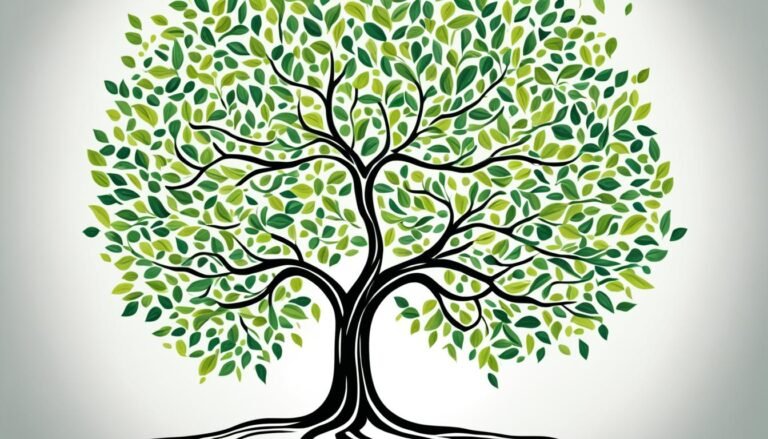Friendliness as a Soft Skill
In the professional world, friendliness is a valuable soft skill. It creates a welcoming atmosphere and establishes positive connections. Being friendly builds trust, resolves conflicts, and elevates interactions. By sharing stories, offering help, and admitting mistakes, you can build strong relationships. Friendliness is key for teamwork dynamics, fostering collaboration and achieving common goals. It enhances workplace culture, increases productivity, and boosts morale. Cultivating a warm demeanor positively impacts your career growth. By leveraging friendliness, you can enhance communication, teamwork, and leadership. Friendliness is a powerful tool in various professional aspects. Embrace this soft skill to excel in your professional journey.
Key Takeaways
- Friendliness enhances interpersonal relationships.
- It fosters a positive work environment.
- Builds trust and rapport with others.
- Demonstrates empathy and understanding.
- Improves communication and collaboration skills.
Importance of Friendliness in Communication
In effective communication, friendliness plays a crucial role in creating a welcoming and engaging atmosphere for meaningful interactions. When you approach conversations with friendliness, you're more likely to establish a positive connection with others. This positivity can lead to better understanding and cooperation, fostering a conducive environment for relationship building.
Friendliness in communication is key to building rapport and trust with those around you. By being warm and approachable, you can encourage open dialogue and active participation from others. This mutual exchange of friendliness sets the stage for stronger relationships built on respect and empathy.
Moreover, friendliness can help diffuse tense situations and resolve conflicts more effectively. When communication is infused with friendliness, it becomes easier to address misunderstandings and find common ground. This approach not only strengthens relationships but also promotes a culture of collaboration and mutual support. Remember, in the context of effective communication, friendliness is a powerful tool that can elevate interactions to a more meaningful and productive level.
Building Trust Through Friendliness
Building trust through friendliness is a fundamental aspect of effective communication and relationship development. Trust building is vital in any interaction, whether personal or professional. By displaying friendliness, you create an environment where trust can flourish, leading to stronger interpersonal connections and smoother collaborations. Developing interpersonal skills is key to fostering trust, as it involves active listening, empathy, and genuine care for others.
To emphasize the importance of trust building through friendliness, consider the following table:
| Trust Building Scenarios | Emotional Impact | Importance |
|---|---|---|
| Sharing personal stories | Builds connection | High |
| Offering help without being asked | Shows support | Medium |
| Keeping promises | Builds reliability | High |
| Admitting mistakes | Shows honesty | High |
Incorporating friendliness into your interactions not only makes you more approachable but also instills a sense of reliability and honesty in your relationships. Remember, trust is the foundation of strong connections, and friendliness is the bridge that helps you build it.
Friendliness and Teamwork Dynamics
When it comes to teamwork dynamics, your friendliness plays an essential role in fostering positive team interactions.
By being approachable and kind, you contribute to building trust among your teammates, creating a supportive work environment.
This trust is the foundation for successful collaboration and achieving common goals as a team.
Positive Team Interactions
To promote positive team interactions within a group, prioritize genuine friendliness and encourage open communication channels. Team bonding is vital for creating a cohesive unit that works well together. By fostering a positive atmosphere through friendly interactions, team members are more likely to feel comfortable expressing their ideas and collaborating effectively.
Encouraging a culture of friendliness can lead to improved teamwork dynamics, increased productivity, and a more enjoyable work environment for everyone involved. When team members feel supported and valued, they're more likely to work together harmoniously towards common goals.
Emphasizing positive team interactions not only boosts morale but also enhances overall team performance and success.
Building Trust Among Teammates
Fostering genuine friendliness among team members is key to cultivating trust and enhancing teamwork dynamics within a group. When it comes to building trust and improving team dynamics, consider the following:
- Open Communication: Encourage transparent and honest dialogue to foster trust and understanding.
- Active Listening: Show empathy and engage in active listening to build strong connections with your teammates.
- Supportive Environment: Create a supportive atmosphere where team members feel safe sharing ideas and concerns.
- Consistent Collaboration: Work together consistently towards common goals to strengthen teamwork dynamics and trust among teammates.
Collaboration for Success
For successful collaboration and strong teamwork dynamics, embracing friendliness is essential in creating a positive and productive work environment. Team synergy thrives when individuals communicate openly, respect each other's opinions, and work towards a common goal. Partnership success is often a result of building strong relationships, fostering trust, and valuing each team member's contributions. By promoting a friendly atmosphere, team members are more likely to collaborate effectively, share ideas freely, and support one another in achieving shared objectives. Embracing friendliness in the workplace not only enhances productivity but also creates a sense of unity and cohesion within the team. Check out the table below for key aspects of successful collaboration and teamwork dynamics.
| Key Aspects | Description | Benefits |
|---|---|---|
| Open Communication | Sharing ideas and feedback openly | Enhanced problem-solving |
| Respectful Interactions | Valuing each other's opinions | Improved team morale |
| Common Goals | Working towards shared objectives | Increased productivity |
Impact of Friendliness on Workplace Culture
When you embrace friendliness in the workplace, you pave the way for positive team interactions, smoother communication dynamics, and enhanced collaboration. Your friendly demeanor fosters a supportive environment where colleagues feel comfortable sharing ideas and working together towards common goals, ultimately boosting morale and productivity in the workplace.
Embracing friendliness can notably impact your workplace culture, creating a more cohesive and engaging atmosphere for all team members.
Positive Team Interactions
To nurture a positive workplace culture, the impact of friendliness on team interactions can't be overstated. Friendliness promotes team synergy by encouraging collaboration and a sense of unity.
Positive relationships lay the groundwork for effective teamwork, boosting trust and mutual respect among team members. When team members communicate in a friendly manner, it establishes a supportive environment where everyone feels valued and heard. This results in heightened employee satisfaction and productivity.
In conclusion, embracing friendliness in team interactions can greatly enhance the overall dynamics within a workplace.
- Fosters team synergy
- Builds positive relationships
- Enhances trust and mutual respect
- Increases employee satisfaction and productivity
Improved Communication Dynamics
Friendliness within the workplace culture has a significant impact on communication dynamics, fostering openness and collaboration among team members. Effective listening plays an essential role in this dynamic, as friendly interactions encourage individuals to genuinely listen to each other, leading to better understanding and empathy.
When team members feel comfortable and valued, assertive communication becomes more natural. A friendly environment promotes assertiveness without aggression, allowing team members to express their thoughts and ideas confidently. This, in turn, leads to smoother interactions, reduced misunderstandings, and improved problem-solving.
Enhanced Collaboration and Morale
Enhancing workplace collaboration and boosting morale, a friendly atmosphere fosters positive interactions and teamwork among employees. Friendliness plays an essential role in shaping a supportive work environment conducive to growth and productivity. Here's how it impacts workplace culture:
- Team Building: Friendliness cultivates a sense of unity and camaraderie, strengthening bonds within teams.
- Employee Engagement: A friendly workplace encourages employees to actively participate, share ideas, and contribute to common goals.
- Open Communication: Friendliness promotes open and honest communication, creating a transparent and inclusive work culture.
- Conflict Resolution: A friendly atmosphere reduces conflicts by fostering understanding, empathy, and a willingness to resolve differences amicably.
Incorporating friendliness as a soft skill not only enhances collaboration but also elevates overall morale and job satisfaction.
Developing Friendliness for Career Growth
When aiming to advance in your career, cultivating a warm and approachable demeanor can greatly contribute to your professional growth. Developing friendliness isn't just about being likable but also about building strong personal relationships that can positively impact your career trajectory. By being friendly and approachable, you create an environment where colleagues and superiors feel comfortable working with you, leading to enhanced collaboration and higher morale in the workplace.
Establishing personal relationships through friendliness can open doors to new opportunities and help you navigate the professional landscape more effectively. People are more likely to support and recommend someone they get along with, making it easier to advance in your career. Additionally, a friendly disposition can help you build a network of contacts that may prove invaluable in the future.
Leveraging Friendliness for Success
To effectively leverage friendliness for success in your career, focus on leveraging your relationships to create opportunities and propel your professional growth. Friendliness is a powerful tool that can open doors and cultivate positive connections in various aspects of your professional life. Here are some key ways to leverage friendliness for success:
- Build Strong Relationships: Cultivate genuine connections with colleagues, clients, and stakeholders to establish a network of support.
- Enhance Communication: Use friendliness to foster open and effective communication, leading to better teamwork and collaboration.
- Friendliness in Leadership Roles: Demonstrate warmth and approachability as a leader to inspire trust and loyalty among your team members.
- Friendliness in Customer Service: Deliver exceptional customer service by approaching interactions with a friendly and helpful attitude, enhancing customer satisfaction and loyalty.
Conclusion
In the grand symphony of your career, friendliness serves as the sweet melody that resonates with others. Like a warm embrace on a cold day, your ability to connect through friendliness can open doors, foster trust, and set the stage for success.
Embrace this soft skill, let it harmonize with your interactions, and watch as it orchestrates a path towards growth and achievement in your professional journey. Let friendliness be your guiding light in the bustling world of business.








